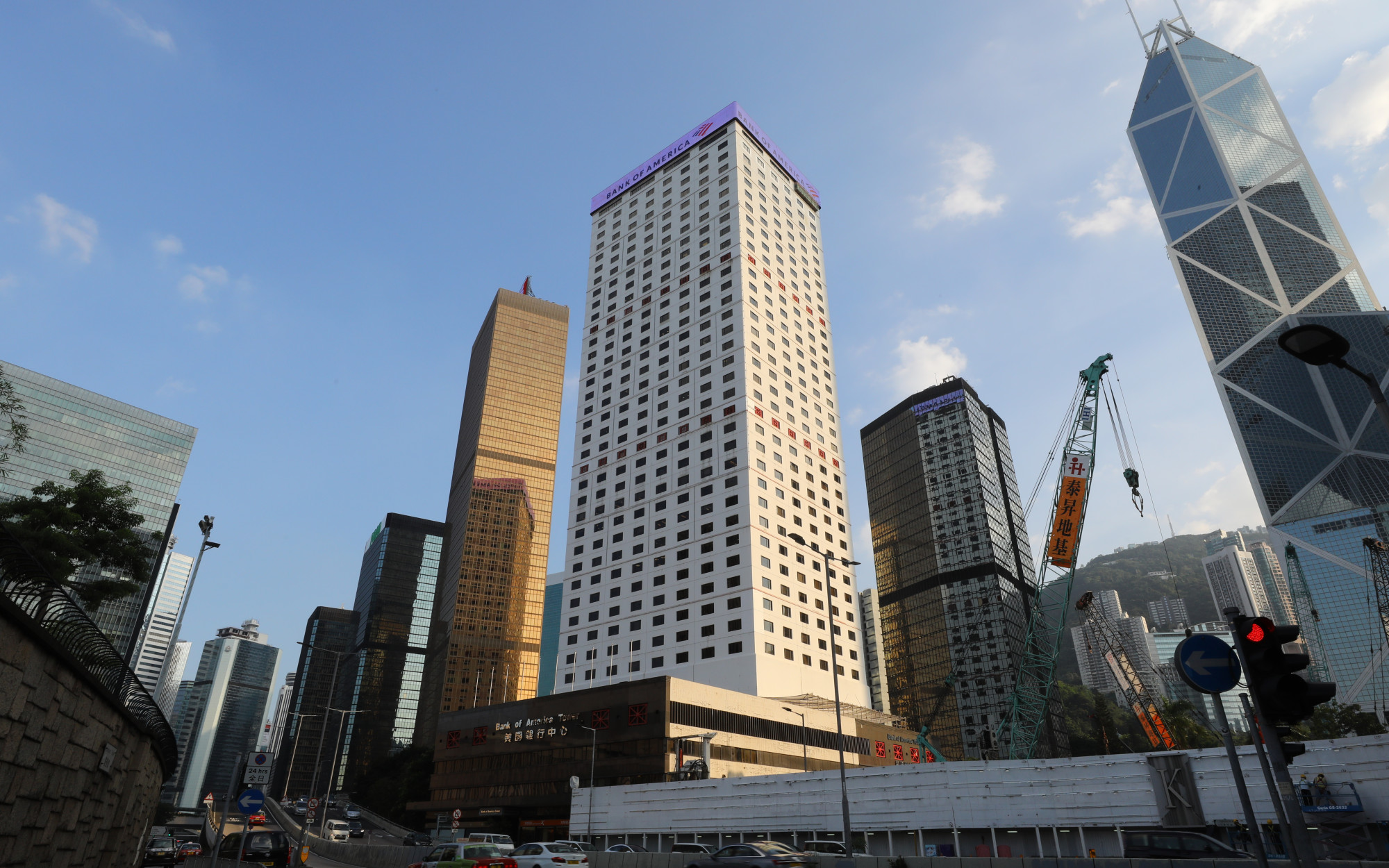
Hong Kong office rents and rental values expected to decline further amid uncertainties about global, Chinese economies, analysts say
- Vacancy levels rose in the first half to 15.7 per cent and will continue to rise as new developments are completed, and rents are expected to edge down by another 1 to 2 per cent, CBRE analyst says
- Hong Kong office rents could continue to fall in the second half, as some companies might further downsize offices by adopting hot-desk arrangements: Bloomberg Intelligence
While senior executives want staff to return to the office – and the Asia-Pacific region continues to lead the United States and Europe in this aspect – flexible working as an option is increasingly popular in Hong Kong, according to CBRE.
“Office leasing momentum has remained slow in recent months on the back of prolonged uncertainties in the global economic outlook,” said Marcos Chan, head of research at CBRE Hong Kong.
Vacancy levels rose in the first half of 2023 to 15.7 per cent and will continue to rise as new developments are completed and enter the market, said Chan, adding that rents are expected to edge down by another 1 to 2 per cent in the second half.
Return of mainland tourists lifts Hong Kong retail property segment
The decline in office rents is reflected in rateable values, the annual rental value estimated by the Rating and Valuation Department. Twenty-four out of 33 benchmark office buildings, or 72.7 per cent, last year saw their rateable values fall below 2013 levels, according to Centaline Property Agency.
The rateable values of Hong Kong’s grade-A office buildings declined by 26.7 per cent between 2019 and last year, Centaline said, with the Bank of America Tower reporting the biggest dive of 35.3 per cent.

Centaline expected overall rateable values to slide by a further 10 per cent in 2023 “due to the high-vacancy rate of office buildings and the completion of large-scale grade-A high-rise buildings, which cause downward pressure on rents”.
Leasing strategies will continue to be cautious in the short term, according to a CBRE report on the Asia-Pacific office markets published in late June.
Singapore stands out with climbing office rents, occupancy rates
Occupiers, therefore, are expected to retain a conservative stance towards leasing in the short term, with lease renewals, renegotiations, right sizing and enhancing lease flexibility among choices available to them, according to the CBRE report. Occupiers are looking especially closely at more flexible expansion and contraction options as well as break clauses.
Occupiers also intend to explore ways to reduce space by exercising lease expirations and consolidating locations, the CBRE report added. Demand from large occupiers looking to sublease space continues to result in elevated levels of shadow space in Australia, Singapore and Hong Kong.
Why Hong Kong shopping-centre operators are racing to install EV chargers
Financial uncertainties globally could limit demand, particularly from the banking sector, Bloomberg Intelligence said. Major landlords might struggle to fill up their existing office space due to strong competition from a number of new buildings.
And while Hong Kong employees are less hesitant about travelling to work compared with many other gateway markets because of shorter commutes, Chan said flexible working as an option for staff, however, has become increasingly popular, particularly among multinational companies. This also forms part of companies’ ESG policies, which promote flexibility and work-life balance.
A Colliers report from late June said that rather than making an office-only mandate part of their strategy, companies need to acknowledge the return will require reasons and motivation.
Many Hongkongers could demand higher salaries to offset losing work-from-home flexibility, according to Bloomberg Intelligence. This could also push major companies to continue offering such arrangements to avoid losing talent.

